#uk history
Text
A very important video on the money Glasgow made from the empire and especially Scotland role in the slave trade
3K notes
·
View notes
Photo

@fayazey
2K notes
·
View notes
Text
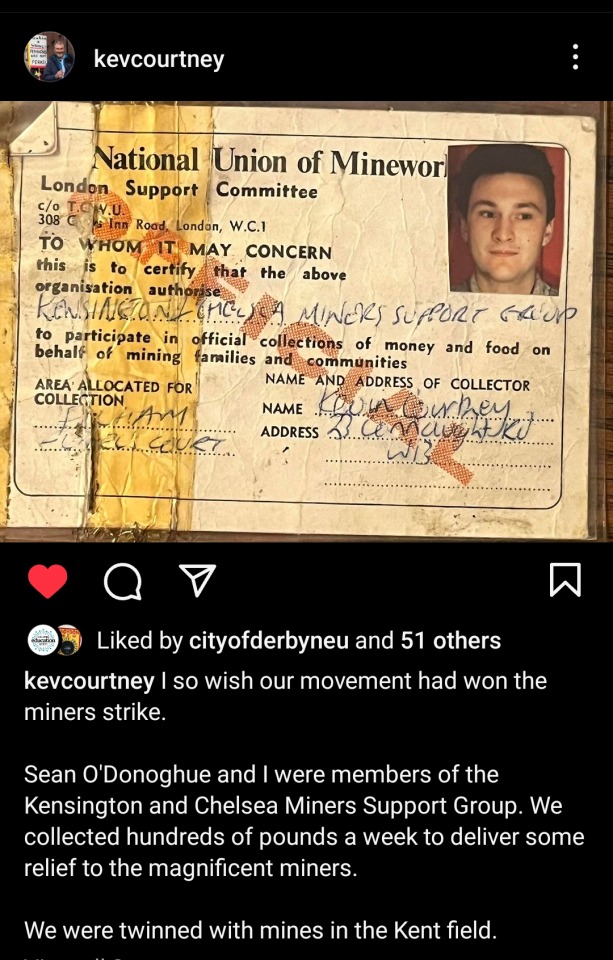
Honestly if we had won the miners strike, UK history would be so different.
414 notes
·
View notes
Text
Time Travel Question 28: Murder and
Disappearance Edition II
Given that Judge Crater, Roanoke, and the Dyatlov Pass Incident are credibly solved, though not 100% provable, I'm leaving them out in favor of things ,ore mysterious. I almost left out Amelia Earhart, but the evidence there is sketchier.
#Time Travel#Murder#Serial Killers#Petter Stump#Early Modern Europe#American History#Zodiac Killer#Jimmy Hoffa#The Beaumont Children#Australian History#Child Death#Child Murder#The Black Dahlia#The Wych Elm#UK History#US History#DB Cooper#Ötzi the Iceman#Ötzi#Maura Murray#Johnny Gosch#The Mary Celeste#Amelia Earhart
306 notes
·
View notes
Text
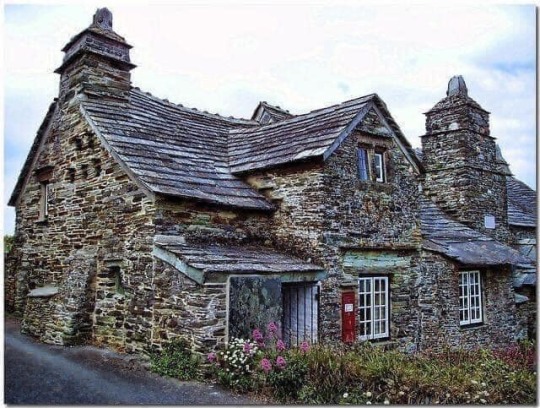
Tintagel's post office in Cornwall has changed little since the 1300's
#Tintagel#Cornwall#Old Post Office#mediaeval#King Arthur#stonework#architecture#slate roof#UK history#Royal Mail
629 notes
·
View notes
Text
FRIENDS
a uk man was arrested after throwing eggs at tampon charlie, shouting: "this country was built on the blood of slaves."
a reminder that the british kidnapped and enslaved over 3.4 million people. when the slave trade was abolished, the uk paid “reparations” only to slave owners (est. $21B today).
#slay for him#we hate the monarchy#but love this fella’s energy#egg-gate#history#uk history#not a countdown#anti monarchy#just information#this was like yesterday but i’ve been busy#it happened in york
885 notes
·
View notes
Note
Someone on Twitter asked who was the British politician who has harmed the British people the most. Of course all the answers were modern politicians - the earliest suggestion was James Callaghan. Looking further back in history, who were the really bad British politicians?
In order to not answer this with a long list of "History's greatest colonialist monsters," I'm going to focus on just the ones who had a negative effect on "the British people," and in order to not answer that with a long list of "the history of English oppression of the Irish," I'm going to focus on just harm done to "the people who lived in what is currently the U.K." I am well aware that this is highly restrictive, but I don't have the time to write a complete history of Britain.
So who's on my shortlist?
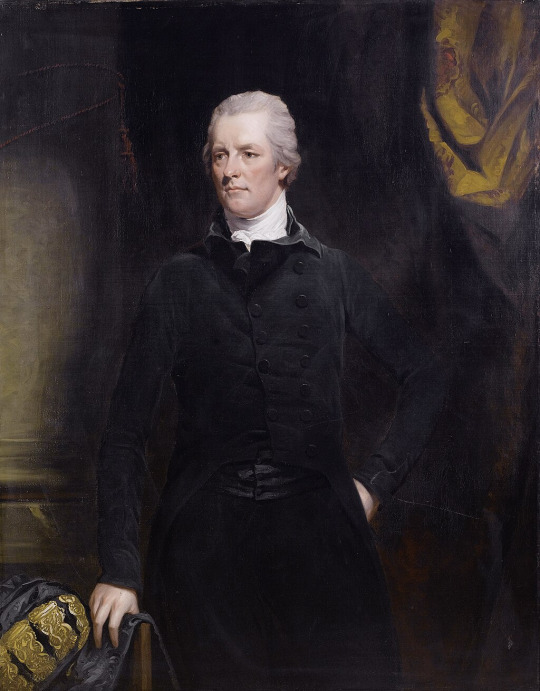
Pitt the Younger. Fought the Napoleonic Wars on the backs of the poor while violently suppressing any dissent with a police state. He passed the Treason Act of 1795 to criminalize dissent, the Seditious Meetings Act of the same year to criminalize public assemblies, spied on pretty much anyone who wasn't an arch-Tory, suspended the writ of habeus corpus, and passed the Combination Act of 1799 to criminalize trade unions. In a just world, would have died on a guilottine in Trafalgar Square.
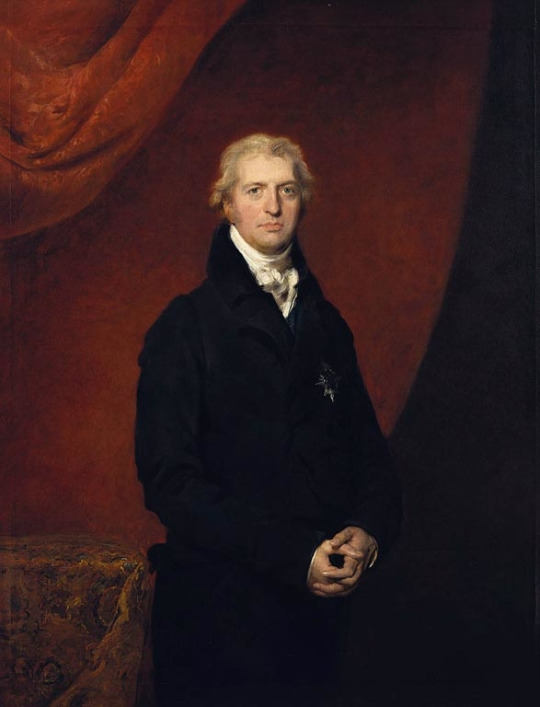
Lord Liverpool. In the wake of the Peterloo Massacre which he was absolutely responsible for, passed the Six Acts to allow the government to search people's houses for arms without a warrant, arrest and transport people for owning weapons or attending a meeting that was deemed to involve unlawful military drilling, reduced due process, shut down all public meetings that involved politics or religion, arrest and transport anyone who wrote anything that criticized the government or Christianity, and heavily tax and impose bonds on newspaper publishers. In a just world, the Cato Street Conspirators would have exercised better tradecraft and assassinated him and his entire government.
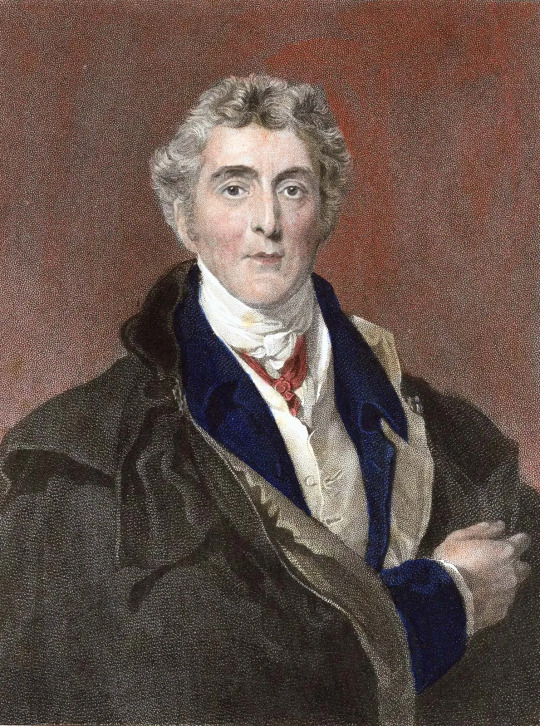
Arthur Wellesley, the Duke of Wellington. Followed up his victory in the Napoleonic Wars by fighting a war against the British people. Arch Tory bastard, adamantly opposed any political Reform that would enfranchise ordinary people, and opposed Jewish emancipation while supporting Catholic emancipation. To be honest, I wish the mob had torched Apsley House with him inside when they had the chance.
As for the runners-up?
Bonar Law, Stanley Baldwin, and Ramsay fucking MacDonald for dropping the Geddes Axe and then subjecting British workers to twenty years of crippling austerity and repression.
83 notes
·
View notes
Photo

Based on current international borders, there are approximately TWENTY TWO countries that the British haven’t invaded.

768 notes
·
View notes
Text
As the name suggests, the World Wars involved the world. People from all over served, and this includes people from African and Carribbean countries, yet I feel they are not so well-remembered in media and the history books for their heroics and sacrifices. Here are a few icons among many below.
Eugene Bullard

Eugene Jacques Bullard (1895-1961) was one of the first black American pilots and served in the French air force’s Lafayette Flying Corps, an all-American volunteer outfit, in World War 1. Meanwhile, in World War 2, Eugene Bullard served as a spy for France, where he also proved highly successful against the Nazi regime. Bullard was fluent in English, German and French, as well as a boxer and self-taught Jazz musician.
Eugene Bullard was awarded fifteen French war medals: Knight of the Légion d’honneur, Médaille Militaire, Croix de Guerre, Volunteer’s Cross (Croix du combattant volontaire), Wounded Insignia, World War I Commemorative Medal, World War I Victory Medal, Freedom Medal, and the World War II Commemorative Medal.
Walter Tull

Lieutenant Walter Tull (1888 - 1918) was the first British-born black army officer and the first black officer to lead white British troops into battle. He fought on the Somme in 1916 and became the first black combat officer in the British army in spite of a military rule officially excluding "any negro or person of colour” from that position. Before the War, he was a pioneering black football player and the first black outfield player to feature in the English top flight, with two seasons at Tottenham Hotspur.
Sadly, Walter Tull was killed in 1918, during the early German spring offensive, and was never awarded the military cross that he was recommended for.
Johnny Smythe

Born in Sierra Leone, Johnny Smythe (1915 - 1996) successfully made it into RAF aircrew during the Second World War. Smythe trained as a navigator, having a great talent for mathematics. He successfully navigated 26 bombing missions over Germany, although was unfortunately shot down on his 27th mission and captured. Smythe would spent the last two years of the war in Stalag Luft I, an infamous Lufftwaffe-run POW camp, until he was liberated by the Russians in 1945.
In 1948, Johnny Smythe served as the senior officer aboard the Windrush. After pursuing a career in law and working as the Queen's Counsel for Sierra Leone for a number of years, in 1961 he was appointed Solicitor General of the newly independent Republic of Sierra Leone. In 1978, he awarded the Order of the British Empire (OBE) for his outstanding service.
Ulric Cross
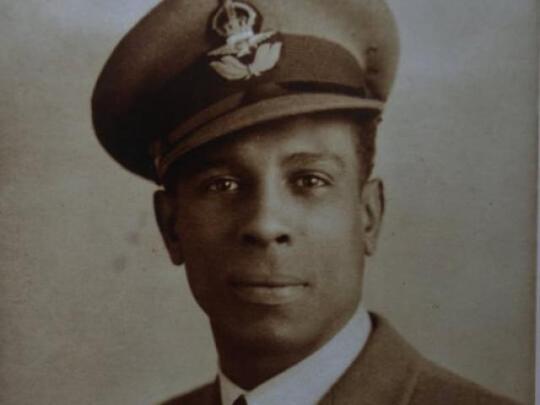
Ulric Cross (1917 - 2013) was Trinidadian and one of the most decorated Caribbean airmen in WWII. Joining the RAF at 24, he trained as a navigator and joined 139 Squadron, gaining the nickname ‘The Black Hornet’. Cross was an expert in precision bombing and later joined the ranks of the elite Pathfinder Force, flying high-risk missions into enemy territory as low as 50 feet as opposed to 25,000 like most pilots. While Cross was offered the option to rest after completing 50 missions, he instead volunteered for another 30 missions over enemy territory. At the end of the War, Cross had flown a total of 80 missions.
For his undeniable commitment, hard work and skill, Cross was awarded the Distinguished Flying Cross and the Distinguished Service Order.
#world war 2#world war 1#us history#uk history#africa#sierra leone#trinidad#black soldiers#world war means WORLD War#someone write a movie about these guys and many others#history#black history#caribbean
151 notes
·
View notes
Text
Fun Fact: Charles Windsor-Mountbatten was the longest-serving heir to the throne in British/English history, being heir apparent for 52 years.
He's also currently the fifth-shortest reigning British/English monarch since William the Conqueror, at 502 days at time of posting.
He's only beating the disputed Queens Matilda (208 days) and Lady Jane Grey (9 days), 12 year old murder victim Edward V (78 days), and his abdicating grand-uncle Edward VIII (326 days).
He has to reign another 286 days to beat the next-shortest, Richard III's 788 days.
56 notes
·
View notes
Text
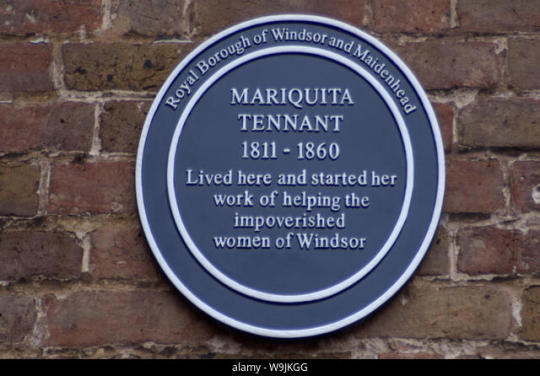

Mariquita Tennant (born Maria Francesca Eroles i Eroles) was a Catalan woman who protected abused and poor women in Windsor (England).
How did she end up in England?
Mariquita was born in the village Pla de Sant Tirs, in the High Pyrenees of Catalonia. During the war between those who wanted an absolutist monarchy and the liberals, Mariquita's father was involved in the liberal side and between 1821 and 1823 he was the leader the local miquelets (militia). When the King of France sent the army known as the Hundred Thousand Sons of Saint Louis to help restore the absolute monarchy, many liberals went on exile to England. Mariquita followed her father, mother and three siblings on exile to London.
They settled in Somers Town, a neighbourhood that had become home to many exiles from Catalonia and the Valencian Country and that had previously also become home to exiled French revolutionaries and American independentists. In February 1833, Mariquita married David Reid, son of a Scottish beer maker who had become wealthy running a pub chain in England. But in November of the same year, David threw himself down a window during an epileptic attack, resulting in his death. Soon after, Mariquita's first and last daughter Mary was born, but she also died soon. Some years later, Mariquita married again. Her new husband was Robert Tennant, but he died a sudden death in 1842.
In 1846, at 38 years old, her first husband's family allowed her to live in one of their properties. She turned this house into a shelter for girls who had been abused by society. There were many girls and women in this situation, so the house was full very soon. Quickly, Mariquita looked for funds and allied with the Anglican church to create a local branch of the House of Mercy. In 50 years, this institution attended and housed 2,500 girls in Windsor, many of which were girls who had been forced into prostitution by poverty and until then had had no way to escape.

The house that Mariquita's first husband's family let her live in, and which she turned into a shelter.
Mariquita suffered bad health for most of her years of service, and in the end died in 1860. She's buried in Saint Andrew's cemetery, overlooking the house she turned into a shelter.
In 2005, the Windsor and Maidenhead city council uncovered a blue plaque to remember her (in England, blue plaques mark the place where a historical event happened or recognise a historical person), though there's a small mistake because it says she was born in 1811 but she was actually born on November 9th 1807.
She's the only Catalan person to have an English blue plaque.
#història#mariquita tennant#windsor#london#england#pla de sant tirs#ribera d'urgellet#catalunya#history#1800s#19th century history#women in history#english history#uk history#women's history#women's rights#europe
61 notes
·
View notes
Text
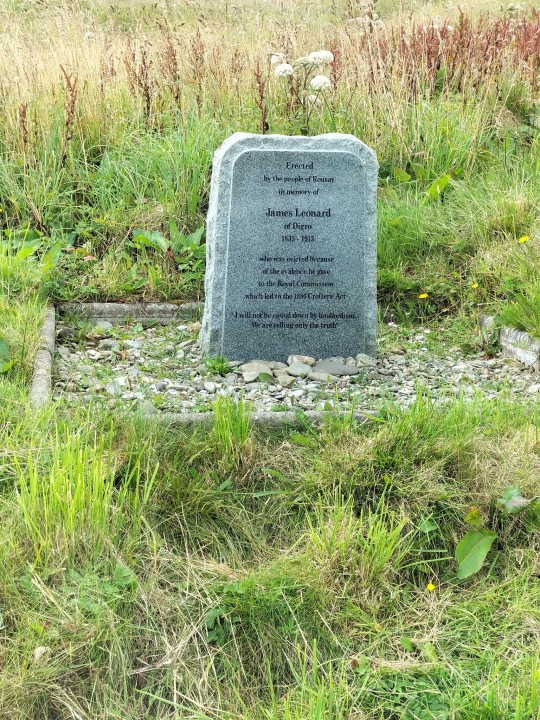
This is a memorial from Roussay on Orkney to James Leonard, an early tennant organiser. He was ultimately evicted from his land by the infamous landlord Frederick William Traill-Burroughs. Following his eviction, three of his children died of diphtheria. But his work in organising the tennants and giving evidence to the Scottish government ultimately got more protections for the crofters and may have helped prevent other clearances on Orkney.
Despite this he failed to win protection in time for the crofters of Roussay, and the island's population has gone from over 1000 at the time of the clearances to less than 100 today.
James Leonard's words still ring true today: "I am prepared to speak the truth and will not be cowed by landlordism" and "We are under the despotism and terror of the landlord and we want that removed ; even though I should fail in this battle, I will fight it out."
Today, James Leonard's farm stands derelict, and the land he rented unfarmed. Meanwhile, Burrough's grand house was gutted by a fire in the 1980s and also currently stands empty.
#uk politics#uk history#tennants#organising#highland clearances#Orkney#Scotland#social history#workers history
92 notes
·
View notes
Text
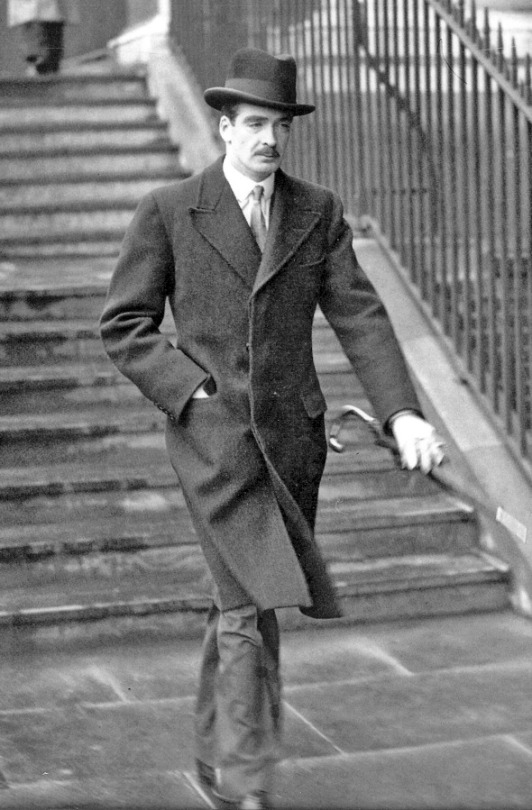
Robert Anthony Eden, 1st Earl of Avon, KG, MC, PC (12 June 1897 – 14 January 1977) was a British politician who served as Prime Minister of the United Kingdom and Leader of the Conservative Party from 1955 until his resignation in 1957.
Achieving rapid promotion as a young Conservative member of Parliament, he became foreign secretary aged 38, before resigning in protest at Neville Chamberlain's appeasement policy towards Mussolini's Fascist regime in Italy. (Source: Wikipedia)
#robert eden#british history#british royal family#uk history#british men#men in suits#mustache#top hat
33 notes
·
View notes
Text
DID YOU KNOW?
Former UK Prime Minister Winston Churchill died in 1965 which means he was alive to witness Beatlemania. Since the Beatles were tremendously successful in bringing Britain to the forefront of pop culture, Churchill wanted to honour the band with medals for their achievement. However, lead songwriters John Lennon and Paul McCartney were staunch anti-war activists and disproved of Churchill’s conscription policies during and after the Second World War. Thus, the Beatles refused to accept the medals. This triggered a significant controversy all throughout the UK and heightened the already festering divisions between the old and young generations, a division still ringing in today’s society. Look up "Paul McCartney and John Lennon Winston Churchill" to learn more about this fascinating and often overlooked moment in history.
236 notes
·
View notes
Text
Nobody talk to me I’m thinking of the historical and cultural landscape leading up to the Scottish Knights of the Round Table tales where a heroic Mordred leads a rebellion against a tyrannical King Arthur.
The fact that the Scottish identified themselves with a character usually portrayed as an irredeemable villain.
The fact that King Arthur was originally a Welsh folk hero of sorts and it had become so Anglicised by that time it was pissing off the Scots.
The myth of Arthur which had been popular and romantic for centuries being soured for people who were in the middle of a war with a future colonial power.
I mean obviously this is just “My fanfic is better than your fanfic.” on a national scale like all adaptations of the Knights but it gives me the feels.
This is what’s fun about the knights!!! Historical and cultural feels and context n stuff. Like how a whole lot of writers fucking hated Sir Gawain for being pagan. Who different nations and groups and eras identify with as their heroes.
Sorry I just
#knights of the round table#arthurian legend#arthurian mythology#arthurian literature#uk#uk history#british history#england#scotland#mordred#king arthur#gawain my favourite godless knight
20 notes
·
View notes
Text
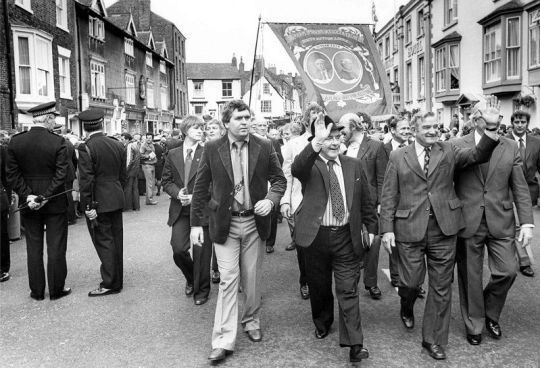

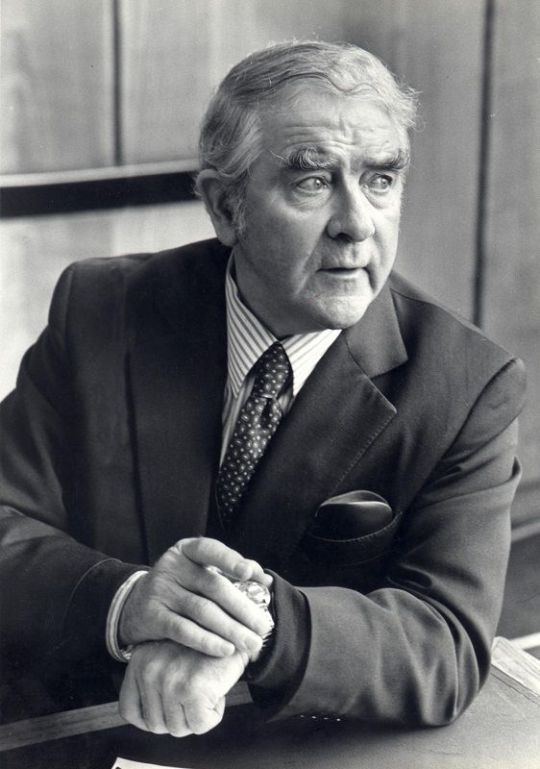
On February 18th, 1981, a BBC headline announced something that would be unthinkable three years later, 'Thatcher Gives in to Miners'.
"…Mrs Thatcher's Conservative Government has withdrawn plans to close 23 pits in its first major u-turn since coming to power two years ago. President of the National Union of Mineworkers Joe Gormley is confident the government's intervention will avert the threatened national miners' strikes…"
After crisis talks in Whitehall between union leaders and Energy Secretary, David Howell, the government agreed to reduce coal imports from eight million to 5.5 million tons and to reinstate higher operating subsidies.
NUM President Joe Gormley stated that as a result of commitments given, he would not be recommending a strike despite overwhelming support for industrial action from within the union membership.
Not everyone was happy;
"…The next day the NUM told all miners to return to work after the executive voted to accept the concessions made by the government and coal board by 15 to 8, with one abstention. Some left-wing pits maintained unofficial stoppages and there were pickets outside the NUM headquarters in London…"
When the government confirmed an injection of 300 million pounds in industry support, the unofficial action was called off and rebel pits were operating again by 20th February. Just over a year later, Joe Gormley secured a 9.3 % pay rise for miners, and was replaced by Arthur Scargill as NUM President.
In a 2002 BBC documentary, a former Special Branch officer claimed that Joe Gormley was a security services informant during the 1970s, having become concerned over the increasing influence within the NUM of left-wing militants.
Arthur Scargill opined,
"…The history of our movement is littered with people in leadership positions who were either connected with Special Branch or connected with the State..."
Joe Gormley was awarded a Life Peerage in 1982, and passed away in 1993.
#social history#uk politics#working class history#social justice#modern history#uk government#british culture#society#uk history#coal mining#coal industry#industrial action#trade unions
25 notes
·
View notes